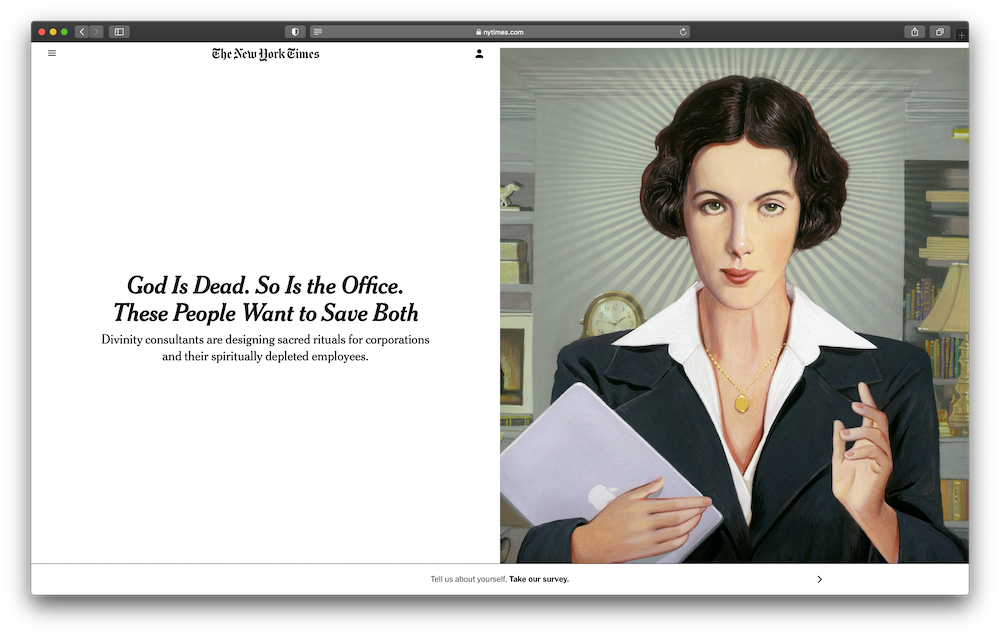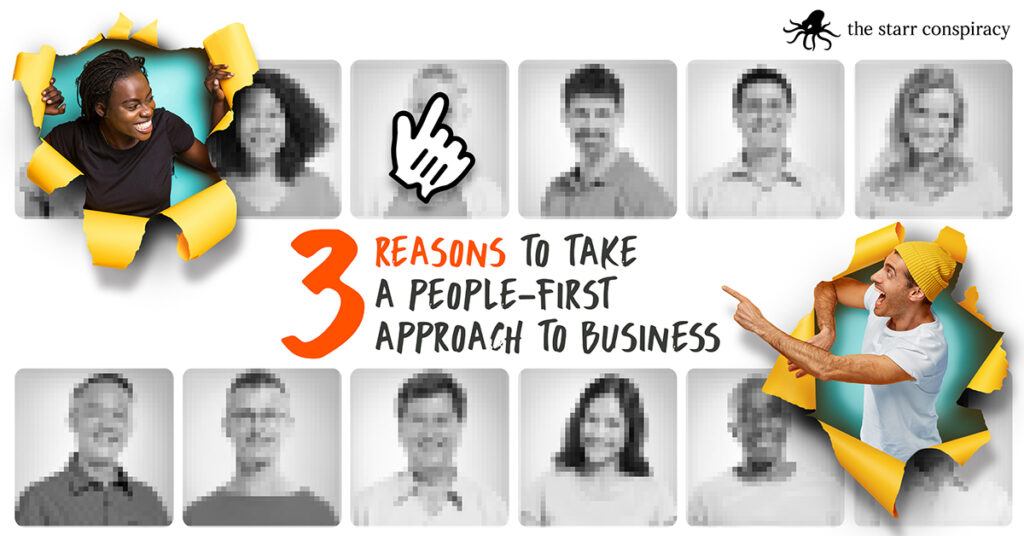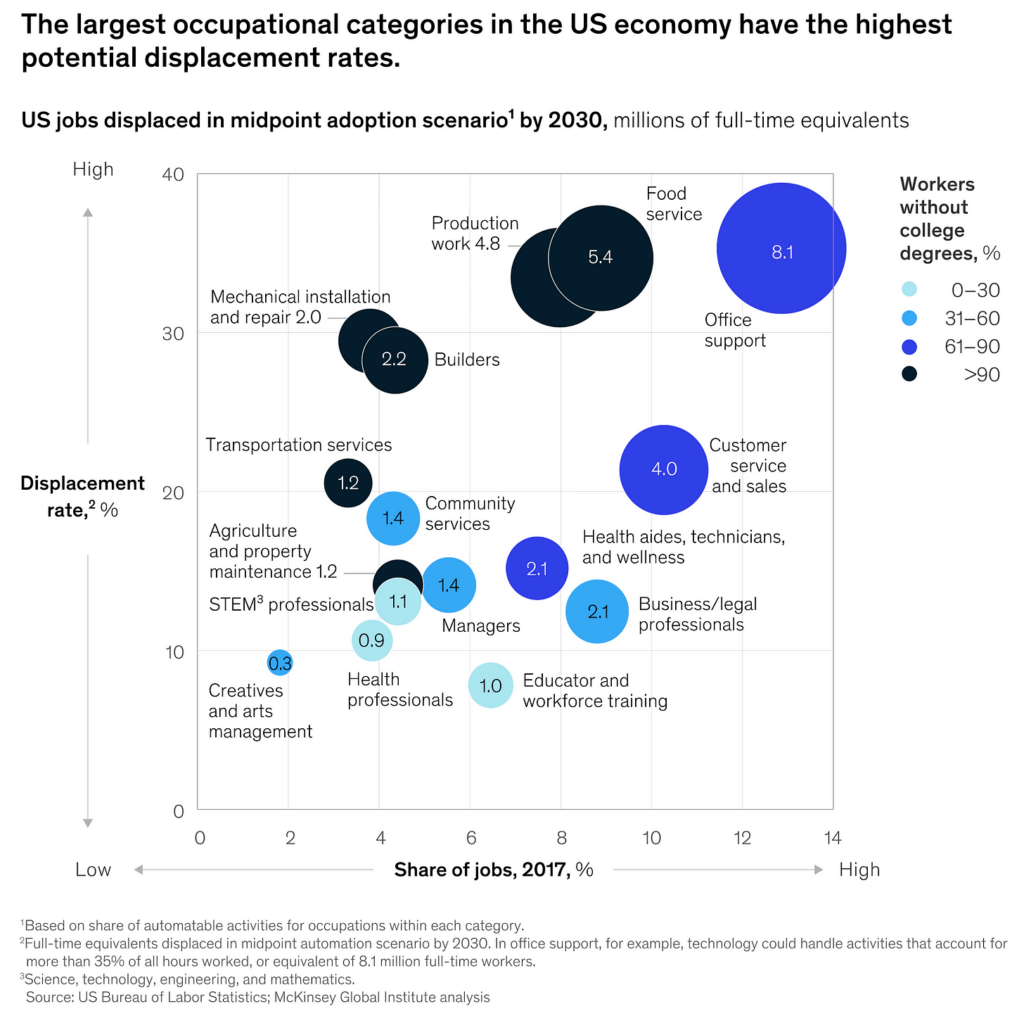Many organizations aim to make the world a better place, to motivate employees, to create purpose. In many ways, these are spiritual questions, theological inquiries that business leaders struggle to define. What is purpose? What motivates people, and why? What is the “better place” for which we’re striving? They don’t teach you that in business school.
An article in The New York Times captures these ideas well. The article’s subtitle reads, “Divinity consultants are designing sacred rituals for corporations and their spiritually depleted employees.” Amen to that.
Divinity consultants, ritual consultants, sacred designers, soul-centered advertisers. The worlds of faith and finance really are beginning to greet each other with a holy kiss. Well, if I may grab some hand sanitizer for you both . . .
Younger generations want to find purpose and meaning in their work. Deloitte Millennial Leadership surveys, Gallup polls, and anecdotal experiences all indicate that a simple paycheck just doesn’t cut it anymore.
This doesn’t just affect the supply side of organizations. On the demand side, younger consumers have spoken: If the brand doesn’t align with buyers’ values, buyers will take that brand to church, so to speak.
So it was no surprise when I read the following paragraph in the Times article.
“We’ve seen brands enter the political space,” said Casper ter Kuile, a co-founder of Sacred Design Lab. Citing a Vice report, he added: “The next white space in advertising and brands is spirituality.”
Back in 2016, I talked with Casper ter Kuile about this for a story I was working on at a magazine I cofounded. He had been writing about this potential white space and encouraging civil conversations for On Being, so I thought I’d offer him supplication for the cause.
One afternoon he said that he was going to be on a panel at the Cannes Lions Festival with the senior pastor of Hillsong NYC and the CEO of SoulCycle. What did they talk about? According to the event info: “With organized religion on the decline amongst young people, there’s an enormous white space to fill for brands with strong virtues.”
I thought, “But what does it even mean for a brand to be spiritual?”
You don’t have to look very far to answer that question. Modern business deafens with spiritual language. Leaders claim they’re technology “evangelists,” ensuring that their organizations’ “right hand knows what the left hand is doing,” whose customer journeys lead to “the promised land.”
To be sure, office spirituality goes deeper than language. We have a certain liturgy, rituals that help frame our workship: All-hands stand-up meetings every Monday with religious regularity, homilies from the CEO on LinkedIn, and sales bibles and tracts to support evangelism.
Deeper still, organizations create documents for their mission, vision, and values statements, which churches call doctrinal statements or catechisms. If you fail to live up to these, you’re excommunicated from the congregation, usually in the form of a meeting invite to “speak with HR.”
We also learned the importance of rest and the effects of burnout. We learned how central work is to the human soul: Axios and others have reported the “skyrocketing rates of depression” due to coronavirus-related crises, unemployment, and financial hardships.
The case for reviving the spirit of capitalism has never been more profound than it is right now. While I admire the work the aforementioned divinity consultants are doing, I’d argue that the modern workplace already looks an awful lot like a religious establishment. All that leaders need to do is “break down the wall of hostility” between Wall Street and the Roman Road. And it’s time we have a come-to-Jesus moment about that.





